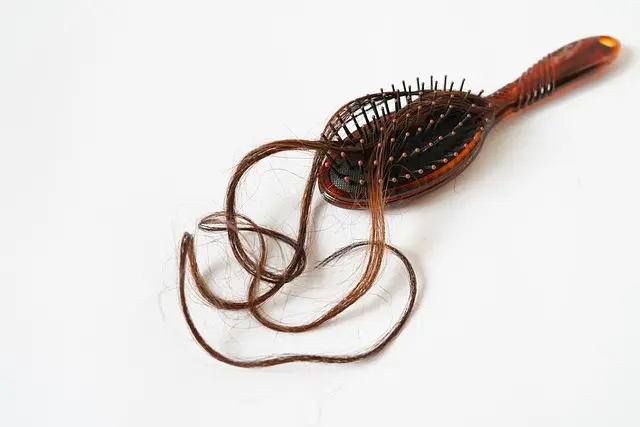Understanding Hair Loss: Causes and Effects
Hair loss is a common issue that affects millions of people worldwide. It can be caused by a variety of factors, including genetics, hormonal changes, medical conditions, and lifestyle choices. Understanding the underlying causes of hair loss is the first step towards finding an effective solution.
Genetic factors, such as male and female pattern baldness, are among the most common causes of hair loss. Hormonal changes, particularly those related to thyroid issues or pregnancy, can also lead to hair thinning. Additionally, certain medical conditions like alopecia areata, scalp infections, and lupus can cause significant hair loss. Lifestyle factors, including poor nutrition, stress, and the use of harsh hair treatments, can exacerbate the problem.
Consult a Healthcare Professional
If you're experiencing hair loss, it's essential to consult a healthcare professional to determine the underlying cause. A dermatologist or a trichologist can provide a thorough diagnosis and recommend appropriate treatments. They may conduct blood tests, scalp biopsies, or other diagnostic procedures to identify any underlying medical conditions that could be contributing to your hair loss.
Early intervention is crucial, as it can help prevent further hair loss and improve the effectiveness of treatments. A healthcare professional can also provide personalized advice on lifestyle changes, nutritional supplements, and hair care practices to support healthy hair growth.
Medical Treatments for Hair Loss
Several medical treatments are available to combat hair loss and promote hair regrowth. These treatments can be effective, but it's important to discuss the potential benefits and risks with your healthcare provider.
Minoxidil: This over-the-counter topical treatment is FDA-approved for both men and women. It works by stimulating hair follicles and prolonging the growth phase of the hair cycle. Minoxidil is available in liquid or foam form and should be applied directly to the scalp.
Finasteride: This prescription medication is primarily used to treat male pattern baldness. It works by inhibiting the production of dihydrotestosterone (DHT), a hormone that contributes to hair loss. Finasteride is taken orally and has shown promising results in promoting hair regrowth.
Platelet-Rich Plasma (PRP) Therapy: PRP therapy involves injecting a concentration of the patient's own platelets into the scalp. The growth factors in the platelets can stimulate hair follicles and promote hair growth. PRP therapy is a minimally invasive procedure and has shown positive results in many patients.
Hair Transplant Surgery: For individuals with significant hair loss, hair transplant surgery may be an option. This procedure involves transplanting hair follicles from a donor area (usually the back of the scalp) to the thinning or balding areas. Hair transplant surgery can provide long-lasting and natural-looking results.
Natural Remedies and Lifestyle Changes
In addition to medical treatments, several natural remedies and lifestyle changes can help combat hair loss and promote healthy hair growth. While these methods may not provide immediate results, they can support overall hair health and complement other treatments.
Balanced Diet: A well-balanced diet rich in vitamins and minerals is essential for healthy hair growth. Nutrients such as biotin, zinc, iron, and vitamins A, C, and E play a crucial role in maintaining hair health. Incorporate foods like leafy greens, nuts, seeds, fish, and eggs into your diet to support hair growth.
Stress Management: Chronic stress can contribute to hair loss. Practicing stress-reducing techniques such as meditation, yoga, deep breathing exercises, and regular physical activity can help manage stress levels and promote hair health.
Avoid Harsh Hair Treatments: Excessive use of heat styling tools, chemical treatments, and tight hairstyles can damage hair and lead to breakage and hair loss. Opt for gentle hair care practices, such as using a wide-tooth comb, avoiding excessive heat, and using sulfate-free shampoos and conditioners.
Scalp Massage: Regular scalp massages can improve blood circulation to the hair follicles, promoting hair growth. Use your fingertips to gently massage your scalp in circular motions for a few minutes each day. You can also use essential oils like rosemary or peppermint oil, which have been shown to promote hair growth.
Embracing Hair Loss: Confidence and Self-Acceptance
While finding effective solutions to combat hair loss is important, it's equally crucial to embrace self-acceptance and maintain confidence. Hair loss can be a challenging experience, but it's essential to remember that it doesn't define your worth or beauty.
Consider joining support groups or seeking counseling to connect with others who are going through similar experiences. Sharing your journey and hearing others' stories can provide emotional support and help you feel less alone.
Experiment with different hairstyles, wigs, or head coverings to find a look that makes you feel confident and comfortable. Many people find that embracing their natural hair loss or opting for a stylish shaved look can be empowering and liberating.
Conclusion
Hair loss is a common issue that can affect anyone, but there are effective solutions available to combat it and restore your confidence. By understanding the underlying causes, seeking professional advice, and exploring medical treatments and natural remedies, you can take proactive steps towards promoting healthy hair growth. Remember to embrace self-acceptance and maintain confidence throughout your journey. With the right approach, you can combat hair loss and feel great about yourself.

